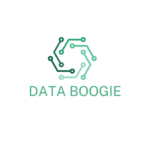Health Insurance Software Development
- Importance of Health Insurance Software: Efficient health insurance software development is crucial for streamlining operations, enhancing customer experiences, and improving data management in the healthcare sector.
- Key Functionalities: Essential features include claims management, policy administration, customer relationship management (CRM), and data analytics, which collectively drive operational efficiency and user satisfaction.
- Challenges Faced: Developers must navigate regulatory compliance, data security, and integration with existing systems to create effective health insurance software.
- Benefits of Custom Solutions: Tailored health insurance software enhances efficiency and customer experience by providing automated workflows, personalized interactions, and user-friendly interfaces.
- Future Trends: Emerging technologies like AI, machine learning, and telehealth are transforming health insurance software, driving predictive analytics and remote healthcare delivery.
- Regulatory Compliance and Data Security: Continuous attention to evolving regulations and robust data security measures are essential for safeguarding sensitive patient information while maintaining software compliance.
In today’s rapidly evolving healthcare landscape, the demand for efficient health insurance software development has never been greater. As insurers strive to streamline operations and enhance customer experience, innovative software solutions play a crucial role in meeting these challenges. From claims processing to policy management, the right technology can transform how companies operate and interact with their clients.
With the complexity of health insurance regulations and the need for secure data management, developers face unique challenges in creating effective software. They must ensure compliance while also delivering user-friendly interfaces that cater to diverse user needs. As the industry continues to adapt to new technologies and consumer expectations, understanding the nuances of health insurance software development becomes essential for success.
Overview of Health Insurance Software Development
 Health insurance software development involves creating specialized applications that facilitate various functionalities within the health insurance sector. It spans areas such as claims processing, policy management, customer service, and regulatory compliance.
Health insurance software development involves creating specialized applications that facilitate various functionalities within the health insurance sector. It spans areas such as claims processing, policy management, customer service, and regulatory compliance.
Key components of health insurance software include:
- Claims Processing: Automating claims submission, adjudication, and payment, which reduces processing time and errors.
- Policy Management: Enabling streamlined management of policy creation, renewals, and cancellations, enhancing operational efficiency.
- Customer Relationship Management (CRM): Providing tools for effective communication with clients and tracking interactions, leading to improved customer satisfaction.
- Data Analytics: Utilizing analytics to monitor trends, assess risk, and improve decision-making processes in policy underwriting and claims management.
Health insurance software development faces specific challenges:
- Compliance: Adhering to regulations such as HIPAA and GDPR requires meticulous attention to data security and user privacy.
- Integration: Ensuring compatibility with existing healthcare systems and APIs poses significant technical hurdles.
- User Experience (UX): Designers must prioritize usability to accommodate a diverse user base, including insurers and patients.
Advancements in technology significantly influence health insurance software development. Trends such as artificial intelligence (AI) and machine learning (ML) enhance predictive analytics in claims and personalize client interactions. Cloud computing improves accessibility, enabling real-time data sharing among stakeholders.
Health insurance software contributes to a more efficient healthcare system by automating processes and improving data management. Understanding its complexities and challenges equips stakeholders with the necessary tools to adapt in a competitive market.
Key Features of Health Insurance Software
Health insurance software includes several key features that enhance operational efficiency and improve user experience. These functionalities ensure effective management of various insurance processes, ultimately leading to better service delivery.
Claims Management
Claims management facilitates efficient processing of insurance claims. This feature presents automated workflows that simplify submission, tracking, and approval of claims. It utilizes real-time data to minimize errors and reduce processing time. Integration with imaging technology allows for electronic submission of documents. Automated decision-making capabilities help expedite claim approvals while ensuring adherence to policy guidelines.
Policy Administration
Policy administration maintains comprehensive management of insurance policies throughout their lifecycle. This feature supports the creation, modification, and termination of policies with ease. It provides tools for tracking policyholder information, coverage details, and renewals. Compliance management ensures that all policies comply with relevant regulations, enhancing transparency and reducing risks associated with non-compliance.
Billing and Payments
Billing and payments streamline invoicing and payment collection processes. This feature automates billing cycles, providing accurate and timely invoices to policyholders. Integration with various payment gateways offers multiple payment options, increasing convenience for clients. Comprehensive reporting tools enable monitoring of payment statuses and outstanding dues, helping to improve cash flow management.
Benefits of Custom Health Insurance Software
Custom health insurance software provides significant advantages that enhance operational effectiveness and customer satisfaction in the healthcare sector.
Improved Efficiency
Improved efficiency results from automated workflows and streamlined operations. Health insurance software simplifies tasks, reducing processing times for claims and policy management. Organizations can minimize manual errors and improve accuracy by implementing automated systems for data entry and validation. Real-time data integration ensures that all stakeholders have access to current information, facilitating quicker decision-making and resource allocation. This efficiency translates into reduced operational costs, allowing healthcare organizations to allocate resources more effectively.
Enhanced Customer Experience
Enhanced customer experience stems from personalized interactions and tailored services. Health insurance software enables customized client communication and proactive engagement strategies. Through data analytics, organizations can identify customer needs and preferences, leading to more relevant offerings and quicker responses to inquiries. User-friendly interfaces contribute to an intuitive experience, allowing customers to navigate their options easily. The result is increased satisfaction and loyalty, as clients appreciate a seamless, responsive service path.
Challenges in Health Insurance Software Development
Health insurance software development faces numerous challenges that can impede progress and impact functionality. Significant obstacles include regulatory compliance and data security, both of which demand careful attention from developers.
Regulatory Compliance
Developers must navigate complex regulations at local, state, and federal levels. Compliance with laws like HIPAA demands stringent measures to protect patient information and maintain privacy. Implementing up-to-date features that align with regulations is crucial for avoiding legal penalties. Developers face additional challenges with evolving regulations, necessitating frequent updates to software solutions. Continuous education on changes in legislation is vital to ensure that software adheres to all applicable standards.
Data Security
Data security is a paramount concern for health insurance software development. Health care data breaches can lead to serious repercussions, including identity theft and loss of patient trust. Developers must implement robust security protocols, such as encryption and secure access controls, to safeguard sensitive information. Regular security assessments and vulnerability testing also contribute to protecting data from potential threats. Adopting a proactive approach to data security enhances the resilience of software solutions against cyberattacks, ensuring that patient information remains confidential and secure.
repercussions, including identity theft and loss of patient trust. Developers must implement robust security protocols, such as encryption and secure access controls, to safeguard sensitive information. Regular security assessments and vulnerability testing also contribute to protecting data from potential threats. Adopting a proactive approach to data security enhances the resilience of software solutions against cyberattacks, ensuring that patient information remains confidential and secure.
Future Trends in Health Insurance Software Development
Emerging trends in health insurance software development focus on leveraging advanced technologies to enhance functionality and user experience. Key developments include the integration of AI, machine learning, and telehealth solutions.
AI and Machine Learning
AI and machine learning significantly enhance operational efficiency in health insurance software. Predictive analytics streamline claims processing by analyzing historical data, predicting trends, and identifying potential fraud. Personalized client interactions improve through data-driven insights, which allow organizations to tailor services effectively. Additionally, automated customer support systems utilize chatbots, reducing response times and improving satisfaction rates.
Telehealth Integration
Telehealth integration reshapes healthcare delivery models within health insurance software. Enhanced accessibility allows patients to consult with healthcare providers remotely, reducing the need for in-person visits. Software solutions that support telehealth include features like virtual appointment scheduling, secure video conferencing, and remote patient monitoring. Insurers benefit from increased client engagement and improved health outcomes, while patients experience greater convenience and flexibility in managing their healthcare needs. The future of health insurance software development is bright and filled with opportunities. As technology continues to evolve the integration of AI and machine learning is set to redefine operational efficiency and customer engagement. By focusing on user-friendly designs and robust data security measures developers can create solutions that not only meet regulatory standards but also enhance the overall user experience. Embracing trends like telehealth and real-time data sharing will be crucial for staying competitive in this dynamic market. Custom software solutions will play a pivotal role in addressing the unique challenges of the healthcare landscape. Ultimately the right approach to software development can lead to improved patient outcomes and greater satisfaction for both insurers and clients alike.



